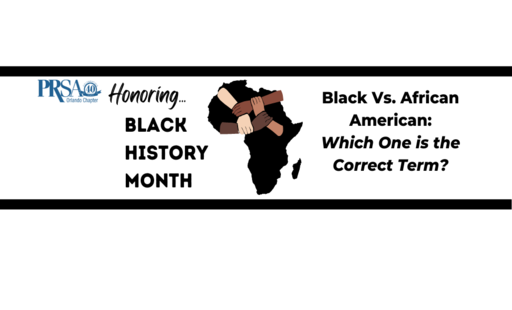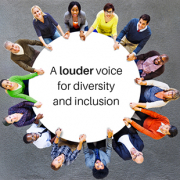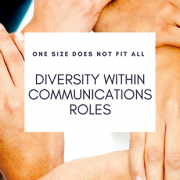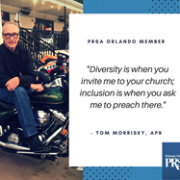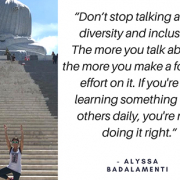Black Vs. African American – Which One is the Correct Term?
By Jaylen Christie
It seems to be the age-old question in some circles — is the proper term Black or African American? When it comes to conversations about racial identity, using the correct terminology can be important and beneficial, particularly for public relations practitioners whose sole jobs are to communicate accurately and effectively. With it being Black History Month and a period of heightened social awareness, what better time is there to shed light on the subject?
Let’s break down these terms, shall we?
The term African American (sometimes used with a hyphen and occasionally without) is habitually used to describe ethnicity while Black often describes race. According to the Merriam-Webster dictionary, the definition of African American is an American of African and especially of Black African descent. But not all Black people are African American. In fact, the Pew Research Center indicates that the Black population in the United States is quite diverse with many being descendants of slaves, while others are recently arrived immigrants. 46.8 million people in the U.S. identify as Black – and the number is growing. Nearly 14% of the national population indicated they were Black in 2019, up from 13% who said the same back in 2000.
So, having said that – which one is the correct term? Black or African American?
Well, that’s a tricky question, isn’t it? According to CBS News, most people tend to lean toward the term African American out of a desire for either political correctness or politeness. The two terms are often used interchangeably, but that isn’t always accurate. For example, there are those in the Black community that identify as Afro-Latino and Afro-Caribbean. Back in the day, the 1960s categorically speaking, Black activists began using the term Black when referring to descendants of slaves. This was done in an attempt to 1) erase the term Negro from the American lexicon and 2) distance the generation from the Jim Crow era, a turbulent period where state and local laws enforced racial segregation in the South. As the world has progressed, terminology has changed – and while African American and Black have become commonly used expressions in this day and age, other terms such as Negro and colored are now considered out-of-date and wrong.
So, how can PR professionals know what terms to use? Well, there is such a thing as inclusive language. This has been defined as working to avoid being disrespectful or offensive by circumventing language that may suggest or imply ideas that are racist, sexist or prejudice. Inclusive language also aims to have communication that would not exclude people. Terms such as BIPOC – which means Black, Indigenous, and people of color – have garnered popularity but aren’t universally loved. Further complicating things is a 2019 Gallup poll. Gallup, known for its public opinion surveys conducted worldwide, found that the large majority of Black Americans have said the use of Black vs. African American doesn’t matter to them. Still, the term Black does seem to be a better choice. The term is a celebration of the race and culture itself – and who doesn’t like a good celebration? Especially when there’s cake involved.
So, in the spirit of diversity, equity and inclusion – inclusion being the operative word here – perchance it would be prudent for PR professionals to use the term Black. The term acknowledges the experiences of people worldwide and seems to be the safer option.
In the words of the late great James Brown, say it loud!

